This article provides an overview of Defence of Competition and Unfair Competition actions. Is it possible for the National Competition Commission to hear an Unfair Competition conflict?
1.- Claims for damages: a difficult process
1.1.- The Law for Defence of Competition (LDC) establishes a system of sanctions against its offenders which can be very costly for complainants.
The procedure starts with instructing the Investigations Division of the National Competition Commission, which can last several months. If it is considered that there exist indications of infringement, the file is submitted to the Council of the National Competition Commission where the process can also last another period of months. If the complainant succeeds in overcoming these two stages, he will obtain a sanction.
This result can be appealed before the National High Court which can take several years to resolve. After a minimum of 5 years, the complainant can obtain a final decision. But he will not be indemnified for damages suffered because this is dealt with by the ordinary courts.
1.2.- Once a conviction is obtained, the person affected will have to start new proceedings before the commercial courts so that that sentence can be of some help, with the following resources: Appeal before the Provincial Court and Appeal before the High Court. This can take a further five years, at least.
This means that, in order to succeed (and be compensated) from proceedings through violation of the Competition Law can take ten years of litigation plus lawyers’ fees before 7 different Authorities. The system could not be more of a deterrent. But, there is a system which could simplify it.
2.- Possible Defence before Ordinary Courts
The Law for Defence of Competition (LDC) and the Unfair Competition Law (LCD) make cross references to unfair actions and infringement of rules on Competition.
3.- Law for Defence of Competiton
3.1.- Art. 3 of LDC establishes that the National Competition Commission will hear about actions involving unfair competition which significantly distort free competition and affect public interest. This rule has been interpreted strictly by the National Competition Commission taking into consideration the few times that unfair actions affect public interest.
3.2.- Certain cases of unfair competition are submitted to the National Competition Commission, ex Art. 3 LDC (Art. 7 of the preceding LDC): Sentence AN 24th Mar 1997, confirmed in the Sentence TJ 8th March 2002 (RJ 2002/2615).
It is not worth National Competition Commission intervening if the deeds do not significantly affect public interest in free competition nor distort the market. TDC 28th Jun 1999.
3.3- In order to prosecute in the National Competition Commission the unfair action must be contrary to free competition. It is not enough that it creates disloyalty; it is necessary that, as a consequence of this action, free competition is affected sufficiently to alter in a major way the development of the market. TDC 17th Feb 2000.
The Commission will hear unfair competition actions so long as a) unfair competition seriously misleads competition conditions in the market, and b) this serious distortion affects public interest.
Art. 3 does not attempt to repress any disloyalty, nor protect compromised competitors but avoids unfair conduct getting to the stage of distorting the competitive functioning of the market.
4. – Unfair Competition Law
4.1.- At the same time, Art. 15 of LCD considers unfair a competitive advantage being availed upon with infringement of laws, or a straightforward infringement of rules which regulate competitive activity.
The contradiction is obvious: any affected person could, in principle, suethe offender in the ordinary Court while asking for compensation of damages, leaping over the administrative route and gaining 5 years. This has been clarified by our High Court.
4.2.- The Defence of Competition Law responds to the objective of guaranteeing sufficient competition presence and protects it in the face of any attack against public interest. Private interests can only have a place when they coincide with this objective. It seems reasonable to refrain from applying the law when it deals with relationships between individuals, without any effect in public economic order. TDC 8th June 2004.
Civil Jurisdiction turns out to be competent and the National Competition Commission has to remain discreet regarding abuse of the dominant position when it deals with claims which affect public interest. Application of the law has the effect of guaranteeing economic order in the market from the perspective of defending public interests.
Although public interest can turn out to be affected, it is not portrayed as relevant and actually of low intensity, which corresponds with individuals defending their interests before a Civil Jurisdiction, since it deals with relations between individuals of a private nature, and,in the end, the Law (LDC) has to protect competition in the interests of market participants and not the market itself. (Sentence TJ 27th June 2003)
Certain unfair behaviour of businessmen with respect to others exceeds theprivate detrimental effects. This incidence in collective interests legitimizes administrative organismsof free competition action to repress unfair conduct which furthermore affects public interest by significantly distorting market competition. (Sentence TJ 8th March 2002)
Contradictions and dysfunctions are possible.
Santiago Nadal

